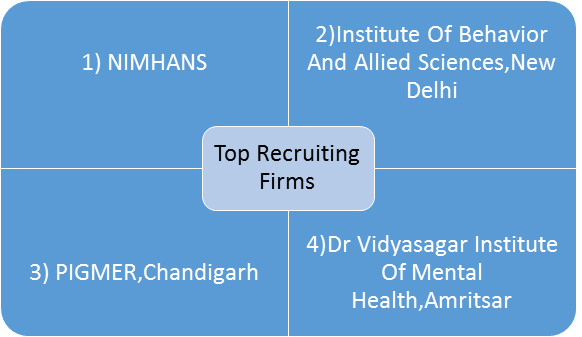Psychiatry is the study and practice of mental disorders. It is a medical specialty that deals with diagnosing, treating, and preventing mental illness. Psychiatry jobs are in high demand due to the increasing number of people who suffer from mental health conditions. In this resource guide, we will provide you with all the information you need to understand psychiatry as a career and become a competent psychiatrist.
Contents
Understanding Psychiatry As a Career

Psychiatry is the study and practice of mental disorders. Psychiatry is a branch of medicine that focuses on the diagnosis, prevention, and treatment of mental disorders. Furthermore, psychiatrists are physicians who have completed specialized training in psychiatry.
Its Objective
The objective of psychiatry is to promote mental health and well-being and to prevent and treat mental illness. Psychiatry has three main goals, i.e.:
- Relieve the suffering caused by mental illness.
- Improve the quality of life for people with mental illness.
- Reduce the burden that mental illness imposes on society.
What Does It Treat
Psychiatry treats a wide range of mental health conditions, including:
How Does It Work
Psychiatrists use a variety of methods to treat mental illness, including:
Psychotherapy: This is the most common form of treatment for mental illness. Psychotherapy involves talking to a therapist about your thoughts, feelings, and behavior.
Electroconvulsive therapy (ECT): This is a type of therapy that uses electrical currents to cause a seizure. Furthermore, ECT is used to treat severe depression, mania, and schizophrenia.
Brain stimulation therapies: These therapies use electrical or magnetic currents to stimulate the brain. Thus, they are used to treat a variety of mental health conditions. Including depression, anxiety disorders, and obsessive-compulsive disorder.
Medication: Psychiatric medications are used to treat a variety of mental health conditions.
Becoming a Psychiatrist

Steps To Become a Psychiatrist
- The best way to become a psychiatrist is to first obtain an undergraduate degree.
- After completing your undergraduate degree, you will then need to complete a four-year psychiatry residency.
- To become a board-certified psychiatrist, you will then need to complete an additional one or two years of training.
Types Of Psychiatrist
There are four main types of psychiatrists:
- Clinical psychiatrists: Clinical psychiatrists diagnose and treat mental illness. They may also research the causes of mental illness.
- Research psychiatrists: Research psychiatrists research the causes and treatment of mental illness.
- Teaching psychiatrists: Teaching psychiatrists teach psychiatry residents and medical students.
- Administrative psychiatrists: Administrative psychiatrists work in administrative roles in psychiatry departments or organizations.
Psychiatrist Credentials
There are several different types of credentials that you can earn as a psychiatrist:
- Medical doctor (MD).
- Doctor of osteopathy (DO).
- Psychiatrist.
- Certified psychiatrist.
- Fellow of the American Psychiatric Association (FAPA).
- Board-certified in psychiatry.
The Key Message
To practice psychiatry, you must be licensed by the state in which you practice. To become licensed, you must pass an exam called the United States Medical Licensing Exam (USMLE). You must also complete a residency in psychiatry.
Completing Residency In Psychiatry
A residency in psychiatry is a three-year training program that teaches you how to diagnose and treat mental illness. During your residency, you will work with patients under the supervision of a licensed psychiatrist.
Skills You Need For Being Competent In Psychiatry
To be competent in psychiatry, you need to have the following skills. Ability to:
- listen and empathize with patients.
- build rapport with patients.
- communicate effectively with patients.
- assess the patient’s mental state.
- diagnose mental illness.
- prescribe psychiatric medications.
- provide psychotherapy.
Skill Pool
Clinical skills: “The most important thing for a psychiatrist is to have good clinical skills. Therefore, you should be able to accurately diagnose mental illness and select the best treatment for each patient. Furthermore, it is also important to be able to build strong relationships with patients.”
Interpersonal skills: “Good interpersonal skills are also essential for psychiatrists. This includes being able to communicate effectively with patients, as well as their families and caregivers. Furthermore, it is also important to be able to work collaboratively with other members of the healthcare team.”
Organizational skills: “Psychiatrists need to be good organizers. This includes being able to manage their time effectively. As well as keeping track of patient records.”
Research skills: “Psychiatrists need to be good researchers. This includes being able to design and carry out research studies. As well as interpreting the results of these studies.”
Teaching skills: “Good teaching skills are also important for psychiatrists. This includes being able to teach psychiatry residents and medical students, as well as other healthcare professionals.”
Finding a Job

When applying for jobs in psychiatry, it is important to write a resume that stands out. Your resume should be well-organized and easy to read. It should also highlight your skills and experience.
Tips For writing a Resume
When writing your resume, be sure to include the following:
- Your name and contact information.
- The name of your undergraduate school and degree.
- Your psychiatry residency program and year of graduation.
- Any licenses or certifications you have earned.
- Your skills and experience.
NOTE: Make sure you highlight your accomplishments. And ensure your resume is up to date.
Where To Find Jobs
There are many ways to find psychiatry jobs:
Job boards: Several job boards list psychiatry jobs, including the American Psychiatric Association (APA) website and the Association of Directors of Psychiatric Residency Training (ADPRT) website.
Job fairs: Job fairs are events where employers meet with potential employees. They are a great way to meet psychiatry hiring managers in person.
Employers’ websites: Many employers have their own websites where they post open positions.
Networking: Networking is a great way to find out about unlisted jobs and to connect with hiring managers.
NOTE: There are many ways to find jobs in psychiatry. You can search for job postings on websites like Indeed and LinkedIn. You can also contact psychiatric clinics and hospitals directly to inquire about open positions.
Salary Expectations
The salary for psychiatrists can vary depending on your experience and credentials.
- Board-certified psychiatrists generally earn more than those who are not board-certified.
- Psychiatrists who work in private practice may also earn more than those who work in a clinic or hospital setting.
The Future of Psychiatry
The future of psychiatry is exciting. There are many opportunities for psychiatrists to specialize in a particular area of psychiatry, or to work in a specific setting. Evidently, psychiatrists can expect to see an increase in demand for their services. The aging population will continue to drive the need for mental health services. In addition, there is also a growing demand for psychiatrists who specialize in treating children and adolescents. Furthermore, there is also a growing demand for psychiatrists, especially in rural areas and inner cities.
“Psychiatry is an exciting field with many growth opportunities. The future of psychiatry is bright, and I encourage anyone interested in becoming a psychiatrist to pursue their dream.”
-Dr. John Smith, Psychiatrist
Growing As a Psychiatrist

There are many ways for psychiatrists to continue growing their skills and experience.
Research Opportunities in Psychiatry
There are many opportunities for research in psychiatry. Some of the most common areas of research include:
- The causes and treatment of mental illness: This area of research focuses on understanding the causes of mental illness and developing new treatments for mental disorders.
- The development and treatment of psychiatric medications: This area of research focuses on developing new psychiatric medications and studying their effects.
- Behavioral therapies: This area of research focuses on developing new behavioral therapies for mental disorders and studying their effectiveness.
- The diagnosis and treatment of psychiatric disorders in children and adolescents: This area of research focuses on understanding the causes and treatment of psychiatric disorders in children and adolescents.
- The impact of mental illness on physical health: This area of research focuses on studying the link between mental illness and physical health.
QUOTE: “Psychiatry is a rapidly-growing field with many opportunities for research. I encourage anyone interested in psychiatry to get involved in research.” -Dr. Jane Doe, Psychiatrist
Teaching Opportunities in Psychiatry
There are many teaching opportunities in psychiatry. Some of the most common areas of teaching include:
- Undergraduate and graduate courses in psychiatry: Undergraduate and graduate courses in psychiatry are a great way to learn about the field of psychiatry.
- Clinical rotations for medical students and residents: Clinical rotations are a great way for medical students and residents to gain experience in psychiatric care.
- Post-graduate programs in psychiatry: Post-graduate programs in psychiatry are a great way to learn about the latest research in psychiatry.
QUOTE: “Teaching is a great way to share your knowledge and experience with others. It can also help you stay up-to-date on the latest research.” -Dr. William Brown, Psychiatrist
Administrative Opportunities in Psychiatry
There are many administrative roles in psychiatry. Some of the most common administrative roles include:
- Clinical Program Director: Oversees all aspects of a psychiatric clinic or program.
- Medical Director: Oversees the medical care of patients in a psychiatric hospital or clinic.
- Director of Training: Oversees the training of psychiatry residents and students.
- Human Resources Manager: Oversees the hiring and firing of staff members in a psychiatric setting.
- Marketing Manager: Develops and implements marketing plans for a psychiatric clinic or hospital.
Clinical Work in Psychiatry
There are always opportunities for clinical work in psychiatry. Some of the most common areas of clinical work include:
- Inpatient Psychiatry: Inpatient Psychiatry is the care of patients who are admitted to a hospital for psychiatric treatment.
- Outpatient psychiatry: Outpatient psychiatry is the care of patients who are not hospitalized. But who receive treatment from a psychiatrist in an office or clinic setting.
- Community mental health: Community mental health is the provision of mental health services in the community. Such as schools, prisons, and homeless shelters.
- Forensic psychiatry: Forensic psychiatry is the application of psychiatric knowledge to legal cases.
NOTE: There are always opportunities for clinical work in psychiatry. If you are interested in a career in psychiatry, be sure to explore all of your options.
Experts’ View On Becoming a Competent Psychiatrist
“To become a competent psychiatrist, it is important to first develop a strong foundation in the basic sciences. You should also complete a residency in psychiatry, during which you will learn how to diagnose and treat mental illness. In addition, it is also important to stay current with the latest advances in psychiatry. Finally, it is essential to develop strong clinical skills.”
Case Study
Amy is a recent graduate of medical school. She is interested in psychiatry but is not sure if it is the right career for her. Thus, she decides to speak with Dr. John Smith, a psychiatrist who has been practicing for 20 years.
Dr. Smith tells Amy that psychiatry is an exciting field with many opportunities for growth. Furtermore, explains that the future of psychiatry is bright. And there are many opportunities for psychiatrists to specialize in a particular area of psychiatry, or to work in a specific setting. In addition, he tells her that there is a growing demand for psychiatrists, especially in rural areas and inner cities.
Furthermore, Dr. Smith then explains the process of becoming a psychiatrist. He tells Amy that she first needs to develop a strong foundation in the basic sciences. Therefore, she should then complete a residency in psychiatry, during which she will learn how to diagnose and treat mental illness. Furthermore, he also tells her that it is important to stay current with the latest advances in psychiatry. Finally, he tells her that it is essential to develop strong clinical skills.
Amy thanked Dr. Smith for his advice and decided to pursue a career in psychiatry.
Conclusion
Psychiatry is an exciting and rewarding field. If you are interested in becoming a psychiatrist, be sure to do your research and explore all of your options. There are many opportunities for growth and specialization in psychiatry. And the demand for psychiatrists is high, especially in rural areas and inner cities.
A Word From Therapy Mantra
Your mental health — Your psychological, emotional, and social well-being — has an impact on every aspect of your life. Positive mental health essentially allows you to effectively deal with life’s everyday challenges.
At TherapyMantra, we have a team of therapists who provide affordable online therapy to assist you with issues such as depression, anxiety, stress, workplace Issues, addiction, relationship, OCD, LGBTQ, and PTSD. You can book a free therapy or download our free Android or iOS app.


